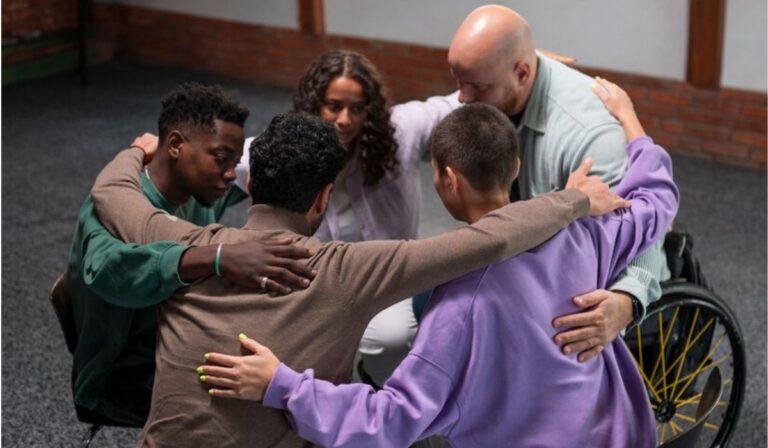Table of Contents
- The Importance of Community Support
- How Support Groups Work
- Benefits of Group Therapy
- Finding the Right Support Group
The Importance of Community Support
Community support plays a critical role in the journey towards sobriety. Studies have shown that individuals who engage in support groups experience higher success rates in maintaining long-term sobriety. Engaging in local support groups can make a substantial difference. The sense of belonging and mutual understanding found in these groups offer a lifeline during difficult times.
Many people feel isolated when battling addiction, and community groups can alleviate those feelings. Being surrounded by those who have faced similar struggles can make one’s journey to recovery more manageable and less daunting. The shared journeys and experiences create a non-judgmental environment where participants feel understood and supported.
Moreover, community support can positively impact mental health. The interconnectedness fostered within these groups helps reduce anxiety, depression, and loneliness, common issues faced by those battling addiction. These benefits underline the importance of integrating community support into recovery programs.
How Support Groups Work
Support groups like AA meetings Anchorage typically bring together individuals facing similar challenges. Meetings are held regularly, providing a safe space to share experiences and offer encouragement. Facilitators, who are often trained professionals or recovering addicts, guide the discussions. These gatherings help participants build a support network, which is crucial for overcoming addiction.
Members share their progress, challenges, and coping strategies during meetings, creating a collective reservoir of wisdom and experience. This peer-to-peer interaction fosters empathy and understanding, giving members hope and the strength to continue their recovery. Each meeting serves as a checkpoint, allowing members to assess their progress and reconnect with their goals.
The structure of support groups varies, but they often follow a similar format. Meetings typically start with an opening statement or meditation, followed by sharing sessions where members talk about their experiences. This structure fosters a sense of consistency and safety, vital for the members’ growth and recovery.
Benefits of Group Therapy
One of the major benefits of group therapy is the shared experience. Individuals who unite with a common goal can learn from each other’s successes and setbacks. It reduces feelings of isolation and promotes accountability. In addition, group therapy often incorporates various techniques like cognitive-behavioral therapy and peer mentoring, tailoring to the needs of the participants.
Group therapy sessions often include structured activities that help individuals understand their behaviors and develop coping mechanisms. These activities can range from role-playing scenarios to problem-solving exercises designed to equip participants with the skills necessary for long-term recovery. This format allows individuals to practice new behaviors in a supportive environment, smoother the transition to real-life situations.
Another significant benefit of group therapy is the diverse perspectives it offers. Each member brings unique experiences and insights, enriching the group’s understanding of addiction and recovery. This diversity can lead to more creative solutions and strategies for overcoming challenges, benefiting all group members.
Finding the Right Support Group
Finding a support group that aligns with one’s personal beliefs and needs is crucial. Like various local meeting listings, online directories can help individuals locate nearby groups. Prospective members should consider the group’s frequency of meetings, the facilitator’s approach, and the overall group dynamics.
The key to finding the right group is understanding what you need from it. Are you seeking a group focused on emotional support or need more structured therapeutic interventions? Answering these questions can guide you to the most suitable group for your journey. Attending a few different meetings can also help you determine which group is the best fit.
It’s important to approach the search process with an open mind. What works for one person may not work for another, so finding a group where you feel comfortable and understood is essential. The right support group can be a cornerstone of your recovery, providing the support and encouragement needed to maintain sobriety.

